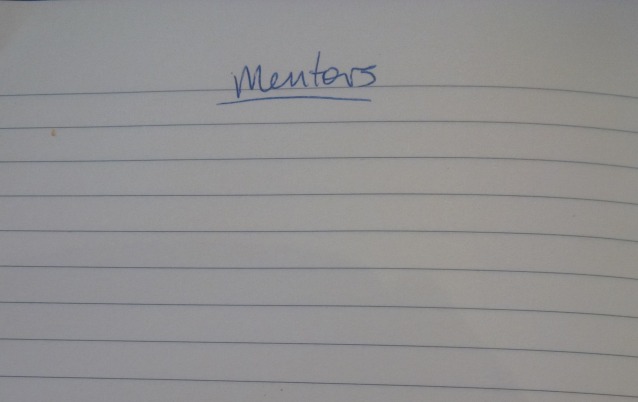I make a lot of lists. It’s an old habit that started when I was in grade school. Lists of to dos, lists of goals, lists of workouts. Lists, lists, lists. I’m also a nostalgic person and so I tend to save a lot of these lists and use them as touch points for storing memories and keeping track of the passing of time. Every now and then I’ll come across an old list and re-read it. Some of them make me think deeply and others make me laugh at my younger self’s absurdity.
Recently, I came across a list in my desk labeled simply “Mentors”. I’ve had a lot of mentors in my life – many who may not even know they played this role for me. I’ve always kept an eye on them and noticed the choices they’ve made and how they’ve carried themselves personally and professionally. A number of years ago, I drew up a list of my mentors as it helped crystallize for me who I admire, why I admire them and what I can learn from them. It was fun to stumble upon that list again and reflect on my choices.
Then, I read an interview with my friend Barb Goose, president of Digitas, where she talks about reverse mentors. It inspired me to draw up another list.
Reverse mentors are people younger than you who you admire and learn from. Everyone on my mentors list is older than me. That was my traditional definition of mentor – someone ahead of you in life that inspires you, helps guide you and show the way to live.
But when I read Barb’s reason for seeking out reverse mentors – younger folks who she learns from in this rapidly changing, digital world – it really resonated with me. Entrepreneurship, technology and innovation are profoundly influenced by the young. If you’re not tapping into their knowledge base and seeking their insight on trends and opportunities, you’re missing out on a valuable resource. Upon reflection, it’s one of the reasons I so much enjoy the teaching I do at Harvard Business School. I learn a tremendous amount from the students and they are always helping me think about the latest disruptive ideas, technologies and companies that are emerging or challenging how to best go about building start-ups to tackle these opportunities.
So now I’ve got my reverse mentor list. I’m tucking it away in my desk for another
few years and look forward to tracking the careers and choices of those on it.


